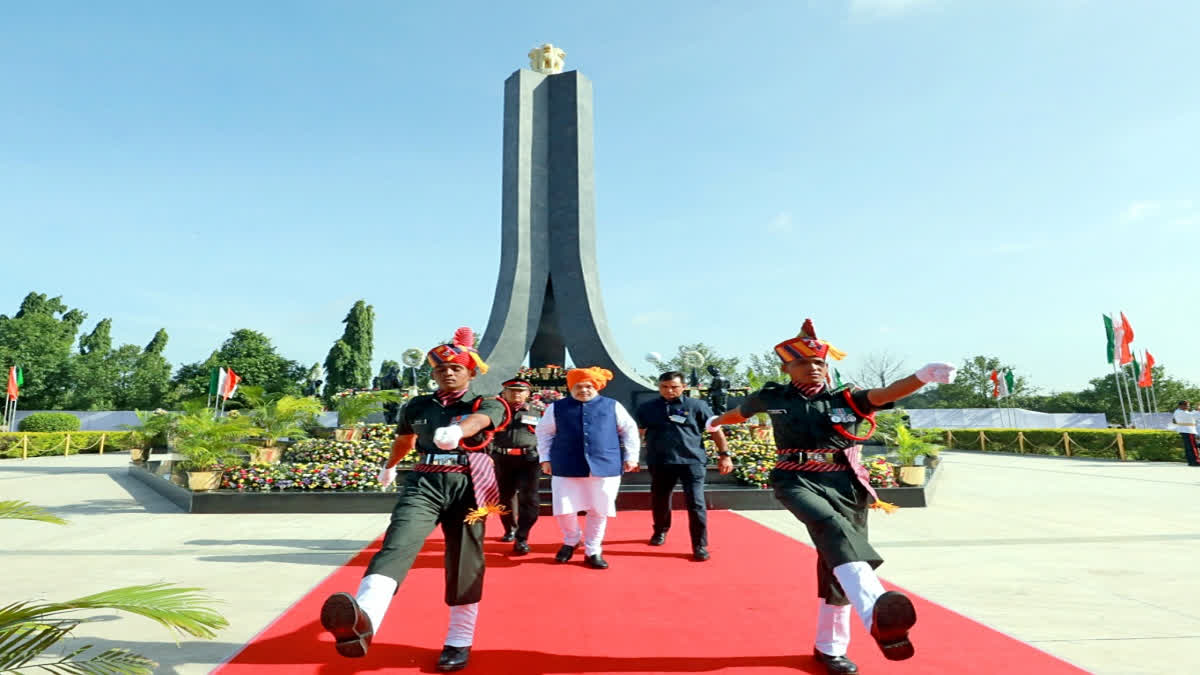Hyderabad: Hyderabad Liberation Day is celebrated on 17 September to mark the day in 1948 when the region of Hyderabad was liberated from the rule of the Nizams and annexed into the Union of India.
Hyderabad was a big Indian state ruled by the Nizams, who recognized British authority. The seventh Nizam, Mir Usman Ali, was the wealthiest person in the world. Hyderabad was one of the final states to join India after independence, important for its size and location.
The fight for independence by Hyderabad State was a significant part of our country's journey towards freedom. Celebrating the day is a way to honour the efforts of those involved in the Hyderabad Liberation Movement.
Hyderabad Liberation Day 2024:
Early in this year(2024), The Ministry of Home Affairs announced the celebration of ‘Hyderabad Liberation Day’ every year on September 17. The day will be celebrated to remember the martyrs who liberated Hyderabad on this day.
In the last few years, the Narendra Modi government has held events on September 17 every year to mark ‘Hyderabad Liberation Day’. Moreover, Union Home Minister Amit Shah had also attended the event in the past.
The Union Ministry of Culture plans to host Hyderabad Liberation Day events at Parade Ground, Secunderabad, on September 17 to honour India's 1948 annexation of Hyderabad. A military parade featuring the national flag hoisting will be followed by cultural programs showcasing the city's historic struggle. Union Minister of Coal and Mines, G Kishan Reddy, will serve as the guest of honour.
History:
Hyderabad was under the rule of the Nizams for 13 months after India gained independence on August 15, 1947. The Razakars, a private militia loyal to the Nizam, resisted the integration of Hyderabad into India and committed atrocities. On September 17, 1948, the then Home Minister of India, Sardar Vallabhbhai Patel, initiated a military operation called "Operation Polo" to liberate Hyderabad from the Nizams' rule.
On September 17, 1948, Nizam of Hyderabad Mir Osman Ali Khan, the seventh ruler of the Asaf Jahi dynasty, surrendered after Operation Polo, the Indian military invasion of Hyderabad. Many people believe that this is the day Hyderabad joined the Indian Union. Actually, not really. The Nizam was appointed as 'Rajpramukh' of Hyderabad state on January 26, 1950, during the accession.
Why is Hyderabad Liberation Day celebrated?
It marks a significant acknowledgement of a pivotal moment in India's post-independence history. This choice, according to a notification from the Union Home Ministry, is intended to honour the bravery of those who battled to free Hyderabad from the rule of the Nizams and to inspire a sense of patriotism in young people.
This day holds great importance as it commemorates the history of our nation. It is a day set aside for solemn reflection on history, introspection, and recommitment to the values of liberty.
The Narendra Modi government has held events on September 17 to mark Hyderabad Liberation Day in recent years.
10 Key Facts You Need to Know about Hyderabad Liberation Day:
- Operation Polo: Operation Polo was the name given to the military operation on September 17, 1948, which resulted in the liberation of Hyderabad and its annexation into the Indian Union.
- Sardar Vallabhbhai Patel's Contribution: Patel had a crucial part in coordinating the operation as India's inaugural Home Minister, with the goal of merging the princely state into a sovereign India.
- Resistance of the Razakars: Under Nizam's orders, the Razakars vehemently opposed merging with India and committed various atrocities against integration supporters.
- Delayed Independence: Hyderabad was among the final areas to become part of the Indian Union, staying under the reign of the Nizam for 13 months after India gained independence on August 15, 1947.
- Standstill Agreement: The initial agreement to maintain peace between India and Hyderabad was a Standstill Agreement. Nevertheless, increasing levels of violence and failure to comply on the Nizam's part resulted in military interference.
- Public Support for Liberation: The liberation movement garnered extensive public approval, as individuals came together to advocate for freedom and unity with India, demonstrated through the chanting of 'Vande Mataram'.
- Strategic Importance: The strategic significance of Hyderabad was essential for the political and geographical unity of India due to its location and size.
- Feudal Oppression: The struggle for freedom also involved challenging oppressive feudal structures and the control of Razakars, paving the way for social and political changes in the area.
- Recognition by the Indian Government: In recent years, the Narendra Modi administration has observed Hyderabad Liberation Day, highlighting the historical importance and sacrifices that led to the freedom of Hyderabad.
- Honouring Patriotism and Memory: Commemorating this day every year helps us to honour the sacrifices made by our martyrs, instil a sense of patriotism in the younger generation, and inform the public about the efforts to bring Hyderabad into the Indian Union.



